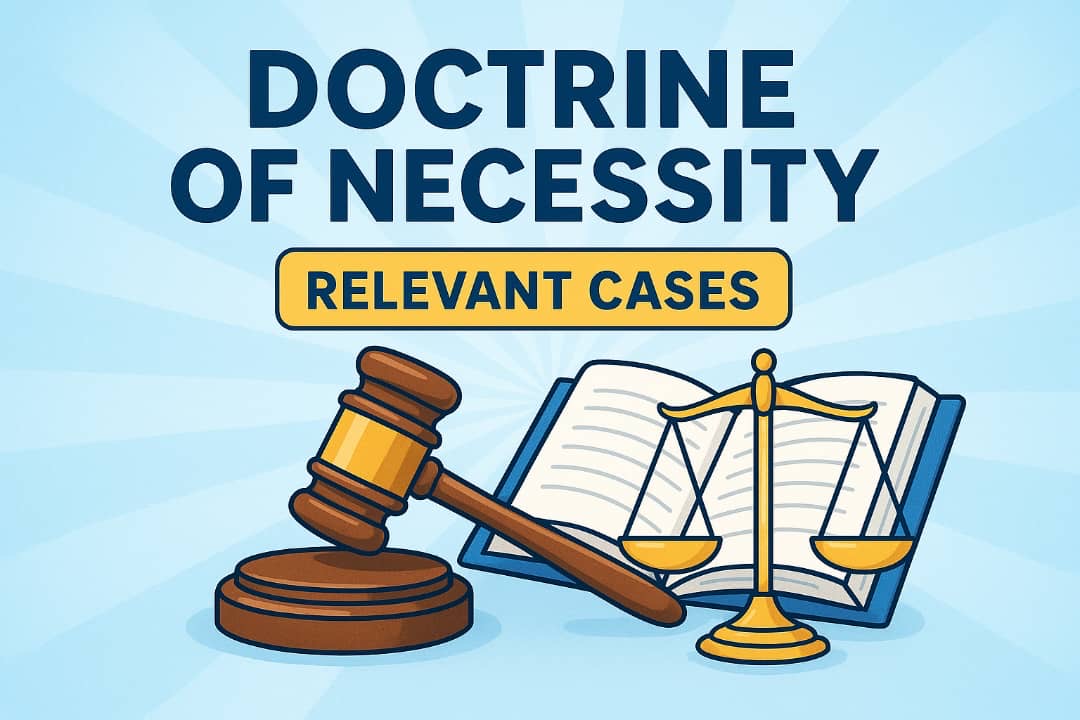
When one speaks of landmark decisions in Nigerian commercial and constitutional law, Bronik Motors Ltd. & Anor v. Wema Bank Ltd. (1983) instantly comes to mind. This case not only tested the limits of banking transactions and mortgage enforcement but also raised a fundamental constitutional question: who truly has jurisdiction over banking disputes in Nigeria the Federal High Court or the State High Court?
This decision of the Supreme Court is widely cited as an authoritative interpretation of Section 230 of the 1979 Constitution and Section 7 of the Federal High Court Act 1973,shaping the Nigerian legal landscape on jurisdictional boundaries between Federal and State courts. For law students, practitioners, and scholars, this case remains a cornerstone in understanding the interplay of judicial power, jurisdiction, and the principle of stare decisis in Nigerian jurisprudence.
FACTS IN BRONIK MOTORS LTD v. WEMA BANK LTD.
The dispute arose from a claim by Wema Bank Ltd. against Bronik Motors Ltd.,involving the enforcement of a mortgage agreement executed to secure the company’s overdraft facility. The bank approached the High Court of Lagos State seeking specific performance of the mortgage agreement.
However, Bronik Motors challenged the competence of the court, arguing that the arguing that the Lagos State High Court lacked jurisdiction. According to the company,all banking matters fall exclusively within the jurisdiction of the Federal High Court by virtue of Section 230(1)(b) of the 1979 Constitution and Section 7(1)(b)(iii) of the Federal High Court Act 1973.
The core question was therefore simple but profound: Did the Lagos State High Court have the jurisdiction to hear this banking dispute?
Madukolu v Nkemdilim (1962)(Full summary)
ISSUES BEFORE THE COURT IN BRONIK MOTORS LTD v. WEMA BANK LTD.
1. Whether Section 7(1)(b)(iii) of the Federal High Court Act ousted the jurisdiction of State High Courts in relation to banking transactions.
2. The proper interpretation of Section 230(1)(b) of the 1979 Constitution.
3. Whether jurisdiction over “banking” matters was exclusive to the Federal High Court.
4. The distinction between judicial power and jurisdiction under the 1979 Constitution.
5. Under what circumstances the Supreme Court could depart from precedent.
6. The application of ejusdem generis and noscitur a sociis rules of interpretation in construing statutory provisions.
Arguments of Counsel For the Appellants (Bronik Motors):
Chief Williams, SAN, argued that Section 230 of the 1979 Constitution granted exclusive jurisdiction to the Federal High Court on all matters within the Exclusive Legislative List, including banking.
He further contended that Section 6 of the Constitution divided judicial power between Federal and State courts,and State courts could only exercise Federal jurisdiction when expressly conferred.
Thus, Lagos High Court lacked jurisdiction to entertain Wema Bank’s claim.
For the Respondents (Wema Bank):
Counsel submitted that there is a difference between judicial power and jurisdiction.
While judicial power is broad, jurisdiction is the authority of a court to exercise such power over a given subject matter.
State High Courts retained jurisdiction over banking matters unless expressly ousted.
DECISION OF THE SUPREME COURT BRONIK MOTORS LTD v. WEMA BANK LTD.
IDIGBE J.S.C. Concurring to the lead judgmet delivered by NNAMANI,J.S.C. pointed out something materials to fact in issues, the learned judge held that State High Courts retain jurisdiction over banking matters, and that Section 230 of the Constitution did not confer exclusive jurisdiction on the Federal High Court in respect of all matters in the Exclusive Legislative List.
The supreme Court made a critical clarification:
“Although the terms judicial power and jurisdiction are frequently used interchangeably, there is a clear distinction between the two. Jurisdiction is the authority of a court to exercise judicial power, while judicial power itself is the totality of powers a court exercises when it assumes jurisdiction and hears a case.”
The Court went further to hold that the Federal High Court’s jurisdiction should not be construed too widely as to deprive State High Courts of their constitutional powers.
“Section 230(1)(b) of the 1979 Constitution cannot be read to mean that the Federal High Court has exclusive jurisdiction in all matters in the Exclusive Legislative List. To do so would render other constitutional provisions redundant and upset the balance of judicial power intended by the framers of the Constitution.”
The Supreme Court also clarified that ejusdem generis rule and noscitur a sociis principles were crucial in interpreting the scope of Section 7(1)(b)(iii) of the Federal High Court Act,preventing an overbroad interpretation of “banking.”
Key Principles Established Bronik Motors Ltd. & Anor v. Wema Bank Ltd. (1983)
1. Judicial Power vs Jurisdiction:
Judicial power is broad and all-encompassing, while jurisdiction is the specific authority of a court to adjudicate a particular matter.
2. Exclusive Jurisdiction of Federal High Court:
The Federal High Court does not automatically have exclusive jurisdiction over all matters on the Exclusive Legislative List. Its jurisdiction is only what is specifically conferred.
3. State High Courts’ Jurisdiction:
High Courts retain jurisdiction over banking disputes, except where expressly ousted.
4. Interpretation of Statutes:
Courts must adopt principles like noscitur a sociis and ejusdem generis to avoid overextension of statutory language.
5. Departure from Precedent:
The Supreme Court will depart from judicial precedent if it is shown to be clearly wrong or if its continued application will cause injustice.
Although jurisdictions conflicts between state & federal High court had seemed impossible to resolve.The decision in Bronik Motors Ltd. v. Wema Bank Ltd. remains a monumental authority in Nigerian law. It reaffirms that State High Courts are competent to entertain banking disputes unless jurisdiction is expressly ousted by statute. It also provides deep jurisprudential guidance on how courts should approach constitutional and statutory interpretation, emphasizing balance between Federal and State judicial powers.
For law students, this case is a “must-study” in constitutional law, Legal system banking law, and judicial interpretation in Nigeria among others. For practitioners, it remains a guiding precedent in raising or resisting jurisdictional objections in court.
I highly encourage,you read the following additional cases below to get more insight on jurisdiction matters.
